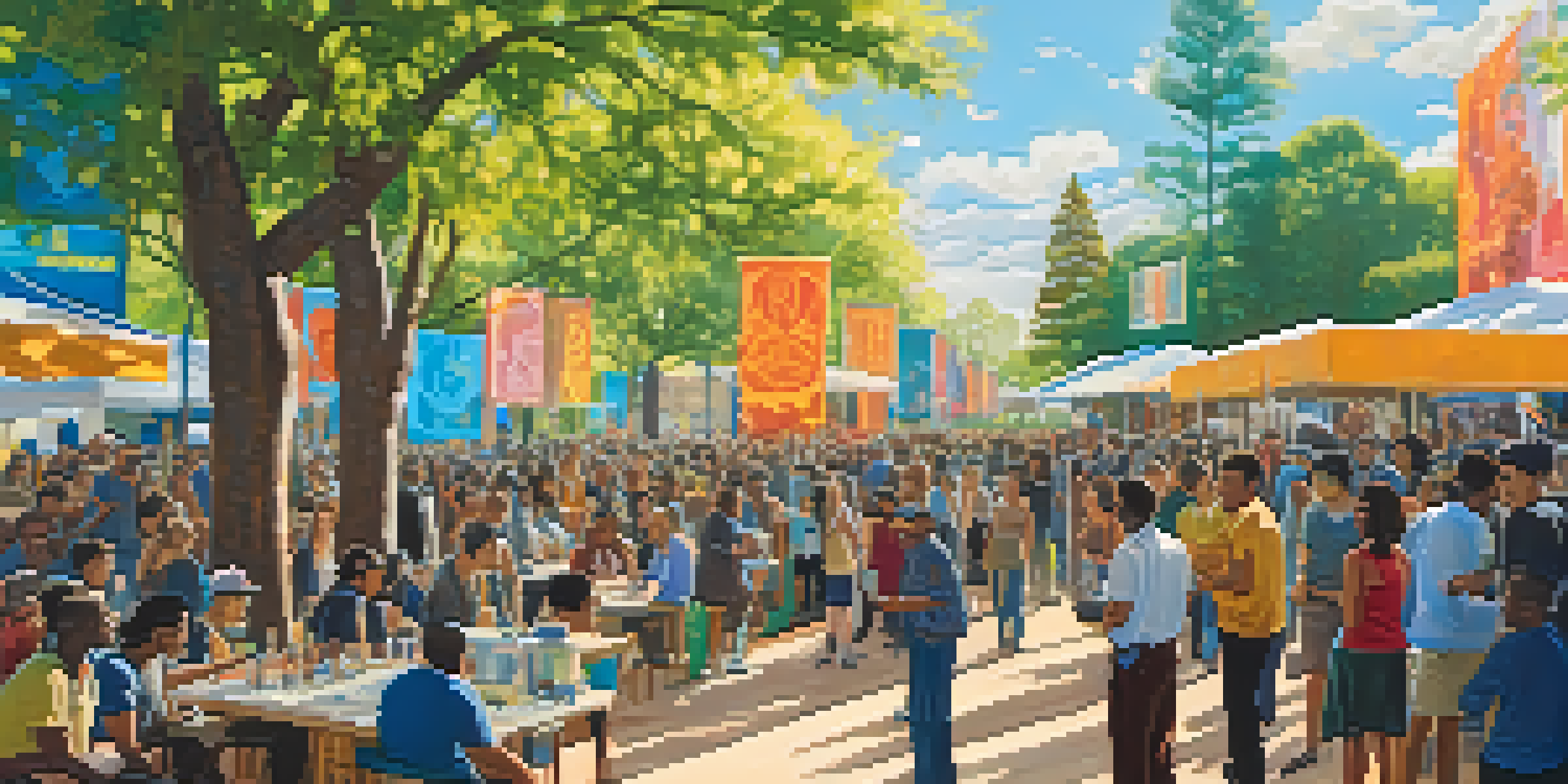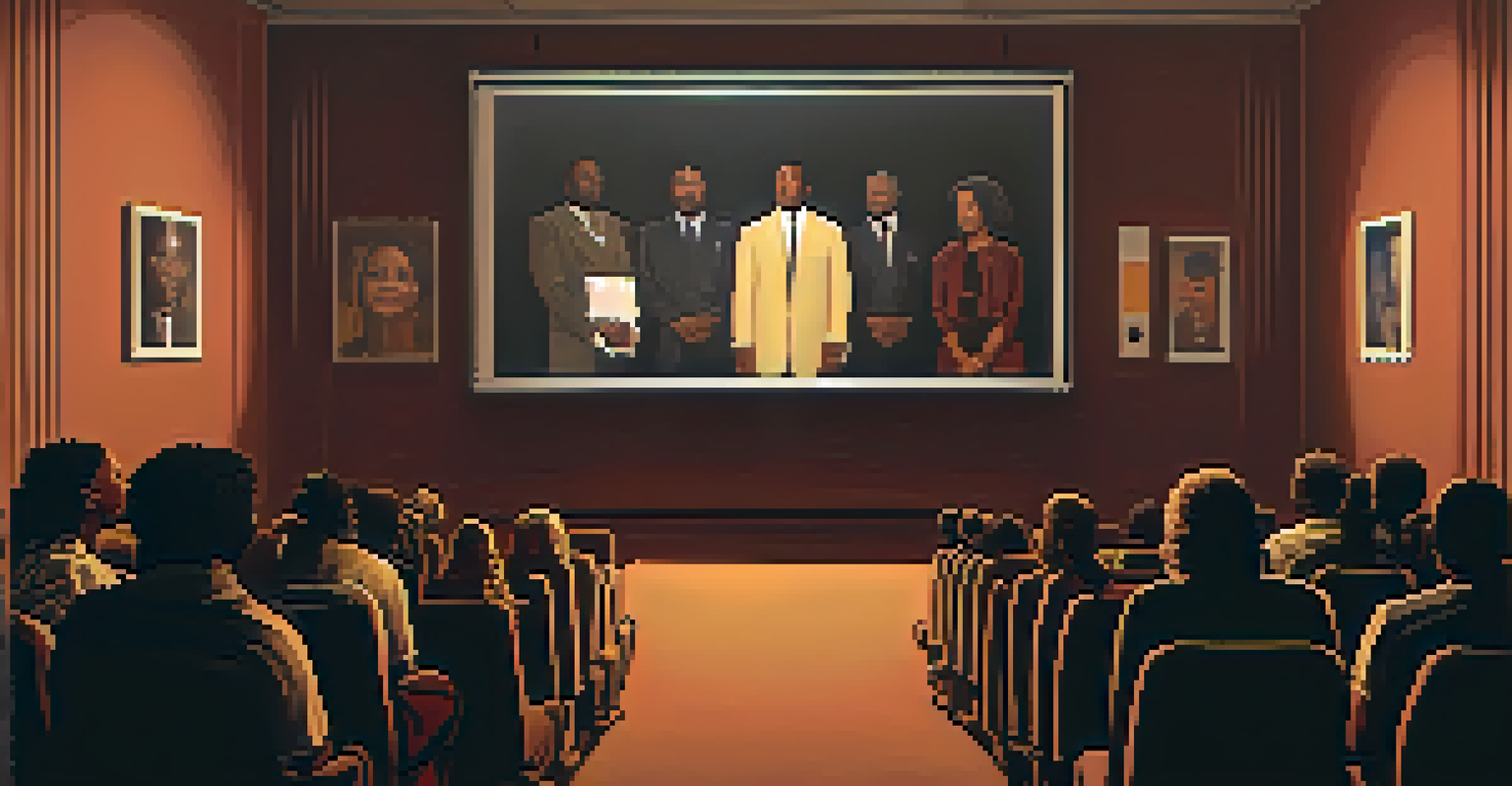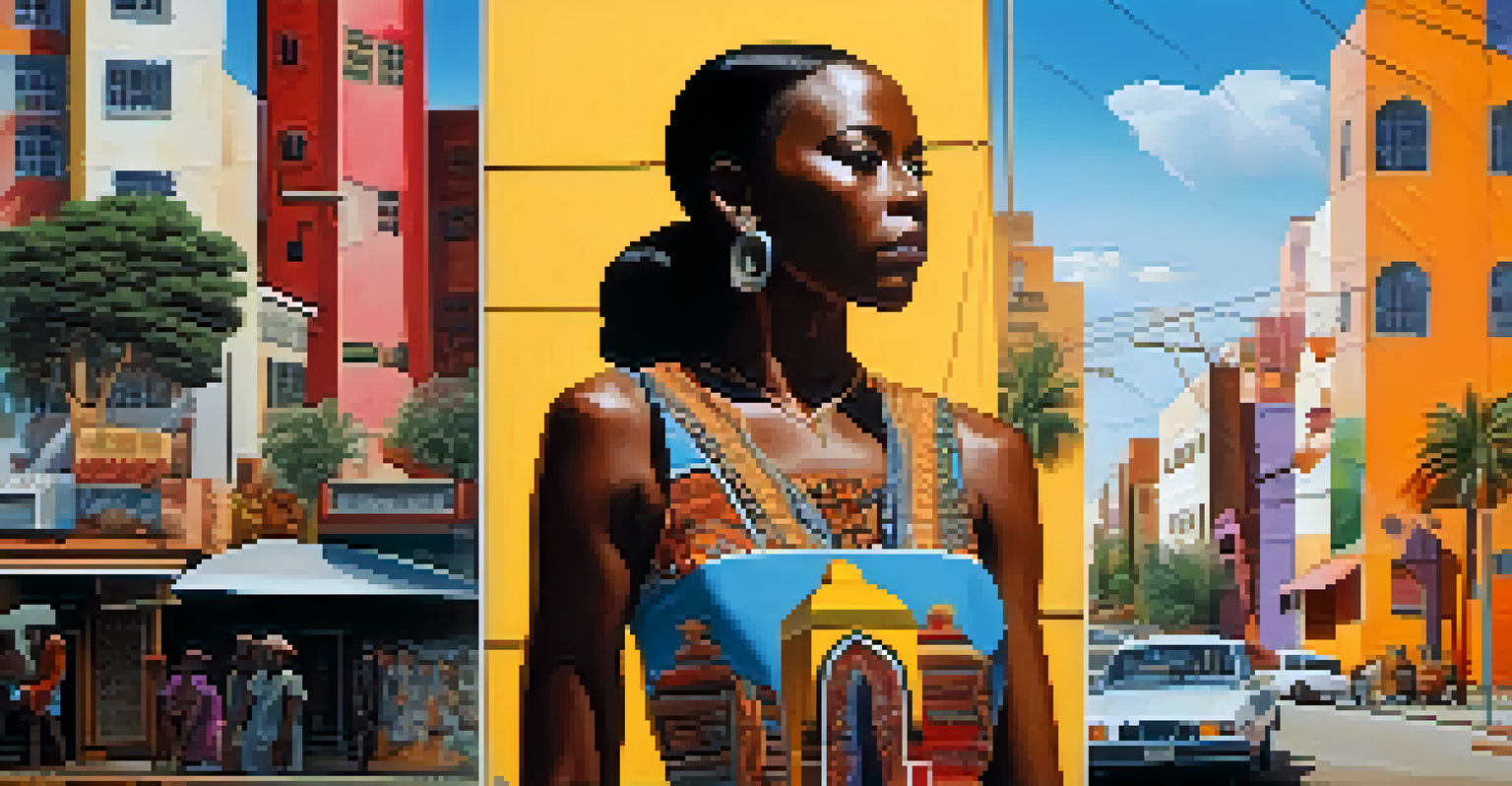The Role of Film in Shaping Racial Identity and Perceptions

The Historical Context of Race in Film
Film has long been a powerful medium for storytelling, reflecting societal norms and values. From the early days of cinema, racial identity has often been portrayed through stereotypes, shaping public perceptions. Movies like 'The Birth of a Nation' not only depicted African Americans in a derogatory light but also influenced attitudes towards race for generations.
Cinema is a mirror by which we often see ourselves.
These early representations set a precedent that often marginalized minority voices. For instance, the lack of diverse narratives in mainstream films meant that many cultures were either misrepresented or completely overlooked. This historical context is essential to understanding how film has both reflected and shaped racial identities over time.
As we move into contemporary cinema, it’s crucial to recognize how these past portrayals continue to influence current narratives. Each film serves not just as entertainment but as a lens through which racial identity is examined and understood. The evolution of these portrayals can help us grasp the ongoing dialogue about race in film today.
The Power of Representation in Modern Cinema
Representation in film plays a significant role in shaping how racial identities are perceived. When diverse voices are included in storytelling, it allows for a more nuanced understanding of different cultures. Films like 'Black Panther' have not only celebrated Black identity but also challenged stereotypes, proving that representation can empower communities.

Moreover, when audiences see characters that reflect their own experiences, it fosters a sense of belonging and validation. This is particularly important for younger viewers who are forming their identities. Seeing themselves in positive roles can inspire confidence and pride in their heritage.
Race in Film Reflects Society
Film has historically portrayed racial identities through stereotypes, influencing public perceptions and societal norms.
Conversely, when representation is lacking or negative, it can perpetuate harmful stereotypes. This highlights the responsibility filmmakers have in crafting narratives that are authentic and respectful. Ultimately, modern cinema has the potential to reshape perceptions and foster a more inclusive dialogue about race.
How Film Influences Racial Stereotypes
Films often reinforce or challenge racial stereotypes, impacting public perceptions significantly. Stereotypes can simplify complex identities into easily digestible narratives, contributing to misunderstandings. For instance, the portrayal of Latinos in certain action films often leans heavily on criminal stereotypes, obscuring the rich diversity within Latino cultures.
The power of film is its ability to change perceptions and challenge stereotypes.
However, filmmakers can also use their platform to deconstruct these stereotypes. By telling stories that emphasize individuality and humanity, films can encourage audiences to look beyond preconceived notions. Movies like 'Crazy Rich Asians' provide a refreshing departure from traditional stereotypes, showcasing characters who are multidimensional and relatable.
This duality of film as both a mirror and a mold means that creators have a unique opportunity to influence societal attitudes. The challenge lies in ensuring that these portrayals are responsible and varied, which can ultimately lead to a more informed and empathetic audience.
The Impact of Documentaries on Racial Awareness
Documentaries serve as powerful tools for raising awareness about racial issues and histories. They provide factual narratives that can educate audiences on the struggles and triumphs of different communities. Films like '13th' highlight systemic racism and provoke important conversations about race in America.
Through real-life stories and interviews, documentaries can humanize issues that might seem distant or abstract. This connection can inspire empathy and motivate viewers to engage with social justice initiatives. For many, these films are eye-opening experiences that challenge preconceived notions about race and identity.
Representation Shapes Identity
Diverse voices in modern cinema empower communities by fostering a sense of belonging and challenging harmful stereotypes.
Moreover, documentaries often fill the gaps left by mainstream cinema, providing a platform for marginalized voices. By shining a light on underrepresented narratives, they broaden the scope of understanding about racial identity. This educational aspect underscores the critical role of documentaries in shaping perceptions.
The Role of Film Festivals in Promoting Diversity
Film festivals play a crucial role in promoting diverse voices and stories that may otherwise go unnoticed. Events like the Sundance Film Festival and Toronto International Film Festival highlight films that challenge the status quo and celebrate underrepresented filmmakers. This diversity not only enriches the cinematic landscape but also fosters a more inclusive conversation about race.
By showcasing films from various cultures, these festivals provide audiences with an opportunity to engage with different perspectives. This exposure can lead to a greater understanding of racial issues and identities. It’s a chance for filmmakers to tell their stories authentically, free from the constraints of mainstream expectations.
Additionally, film festivals often serve as platforms for discussions and panels on racial representation in cinema. Such dialogues are essential for fostering change within the industry. As audiences demand more diverse narratives, festivals can help bridge the gap between creators and viewers, creating a more equitable film landscape.
The Influence of Global Cinema on Racial Perceptions
Global cinema has the potential to reshape racial perceptions by offering fresh narratives and perspectives. Films from countries like South Korea, Nigeria, and Brazil provide insights into different cultural identities and challenges. This cross-cultural exchange enriches the global understanding of race and identity, breaking down barriers between communities.
For instance, films like 'Parasite' and 'City of God' address social class and race in ways that resonate with audiences worldwide. They invite viewers to reflect on their own societal structures while fostering empathy for others. This interconnectedness highlights how film can serve as a universal language in exploring complex themes.
Documentaries Educate on Race
Documentaries raise awareness about racial issues by providing factual narratives that highlight the struggles of marginalized communities.
However, it’s important to approach global cinema with cultural sensitivity and an understanding of context. Misinterpretations can arise when cultural nuances are overlooked. By celebrating and respecting these differences, filmmakers can contribute to a more inclusive and diverse understanding of race on a global scale.
The Future of Racial Identity in Film
As society continues to evolve, so too does the representation of racial identity in film. There’s a growing demand for authentic storytelling that reflects the complexities of race and culture. This shift indicates a promising future where diverse narratives are not just welcomed but celebrated.
Filmmakers are increasingly recognizing the importance of inclusivity both in front of and behind the camera. Initiatives aimed at supporting minority filmmakers are gaining traction, leading to richer and more varied storytelling. As a result, audiences can expect to see characters that represent the full spectrum of human experience.

Moreover, technology and streaming platforms are democratizing access to diverse films, making it easier for underrepresented voices to share their stories. This accessibility can create a ripple effect, encouraging more filmmakers to explore racial identity in innovative ways. The future of film holds great potential for redefining how we understand and celebrate racial identity.